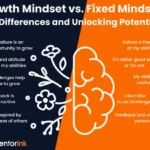
In today’s fast-moving corporate landscape, leadership goes far beyond ticking off tasks. It is about motivating teams, making smart decisions under pressure, and leading through change with clarity and confidence. That is where executive coaching makes a difference in the workplace. Whether you’re a top executive, a startup founder, or a rising leader, coaching provides a tailored path for growing both personally and professionally.
What Is an Executive Coaching Program?
At its core, an executive coaching program can be defined as a professional development process designed to help leaders become more effective, self-aware, and strategic in their roles. It involves one-on-one sessions with a trained executive coach, who acts as a guide, challenger, and confidant throughout the journey.
Unlike traditional management training, executive coaching is not about teaching generic leadership theory. Instead, it is highly personalized compared to the classical one. Coaches work closely with them to identify strengths, pinpoint areas for improvement, and develop customized strategies to overcome specific challenges. These challenges can range from improving communication skills and emotional intelligence to managing teams more effectively or preparing for larger roles.
The coaching relationship is also typically built on trust and confidentiality. Sessions may happen weekly or biweekly over a period of several months, sometimes even up to a year or more. And while each coach has their own approach, most programs involve goal setting, reflective questioning, feedback exercises, and action planning.
What is truly powerful about executive coaching is its focus on transformation from the inside out. It is less about “fixing” you and more about unlocking your full leadership potential.
Benefits of Executive Coaching Programs
It is an undeniable fact that executive coaching is so valuable, not just for the individual leader, but for the organization as a whole. The benefits go way beyond just improved productivity.
Increased Self-Awareness
Executive coaching shines a spotlight on blind spots. Through tools like 360-degree feedback or behavioral assessments, leaders get honest insights into how they’re perceived by others. This self-awareness is the first step toward meaningful growth.
Sharper Decision-Making Skills
Leaders face constant pressure to make complex decisions quickly and effectively. Coaching programs help sharpen those skills by offering new perspectives, challenging assumptions, and encouraging critical thinking under pressure.
Improved Communication and Emotional Intelligence
Let’s face it: good leaders are great communicators. They know how to listen, how to empathize, and how to articulate vision clearly. Coaching helps leaders fine-tune these soft skills, which are often the hardest to develop yet the most essential.
More Effective Leadership Style
Through regular reflection and feedback, leaders can identify which aspects of their style work well and which do not. With support from a coach, they can adjust and align their leadership style to be more impactful and authentic.
Better Conflict Resolution
Navigating conflict in the workplace is somehow tricky. Coaching provides tools and strategies to manage disagreements constructively, whether between team members, departments, or even with stakeholders.
Higher Confidence and Resilience
Leaders who go through coaching often emerge with greater confidence in their abilities. They are better equipped to handle stress, bounce back from setbacks, and keep their teams motivated through tough times.
Career Advancement Opportunities
Many professionals invest in coaching when preparing for a promotion or transition to a higher-level role. It is a strategic way to build the skills, mindset, and executive presence needed to rise through the ranks.
How Executive Coaching Strengthens Leadership
So how does executive coaching actually make someone a better leader? It is a personal journey that blends strategy with self-awareness and the results show up gradually but powerfully.
Customized Support That Sparks Real Change
Unlike cookie-cutter workshops, executive coaching is built around you. It pinpoints your challenges. Maybe it is handling stress, delegating better, or leading with more authenticity. This also creates a game plan tailored to those needs. The changes go deep and tend to stick.
Fostering a Growth-Oriented Mindset
One of the biggest shifts coaching brings is in mindset. You start to view setbacks as stepping stones, and feedback becomes something to embrace, not fear. This attitude often trickles down to your team, creating an environment where learning and growth thrive.
Sharpening Strategic Thinking
Coaches also help you pause and zoom out. With tools like reflection and scenario planning, you start thinking beyond today’s fires and begin shaping long-term strategies. This kind of big-picture thinking is crucial in today’s ever-changing business world.
Staying Accountable and Focused
It is easy to set goals but it is harder to follow them. Coaches help you stay on track by checking in, pushing past excuses, and holding you to your word. That kind of consistent follow-through can seriously boost your impact as a leader.
Leading Through Change with Confidence
Modern leaders face non-stop changes from tech shifts to remote work dynamics. Executive coaching programs help you adapt, stay steady, and lead with clarity, even when things feel uncertain.
Executive Coaching Program Examples
In those days, executive coaching programs seemed crucial for workplaces. Both universities and private foundations give people executive coaching programs.
Leadership Coaching/Harvard University
Harvard University’s Leadership Coaching Program is a prestigious certification course offered by one of the world’s top academic institutions. Led by renowned coaching experts, this intensive two-day program is designed for those who want to begin their coaching journey quickly and effectively.
University of Texas Executive Coaching Institute
The University of Texas at Dallas Executive and Professional Coaching Certificate Program blends academic depth with practical experience to develop high-impact coaches. Focused on ICF Core Competencies, ethics, and self-awareness, the program offers flexible online learning for busy professionals.
Participants receive group and one-on-one mentor coaching, along with personalized feedback, and are prepared to pursue the ICF Level II credential. It’s an ideal choice for aspiring or experienced coaches seeking to elevate their leadership impact.
Executive Coaching University of Pennsylvania
The Executive Development Program at the University of Pennsylvania provides essential business foundations tailored for those looking to grow their executive coaching practice. This two-week intensive covers core coaching principles while offering hands-on practice under expert supervision, helping participants build confidence and real-world coaching experience.
Certificate in Leadership Coaching / Georgetown University
Georgetown University’s Leadership Coaching Program consists of eight month-long modules, each designed to build the mindset, presence, and skills essential for effectively supporting and challenging leaders.
Certificate in Executive Coaching / New York University
New York University offers a comprehensive Certificate in Executive Coaching, requiring completion of four 12-week courses. The program takes a three-pronged approach, combining coaching theory and science, evidence-based tools and models, and the ICF core competencies to prepare well-rounded, effective coaches.


